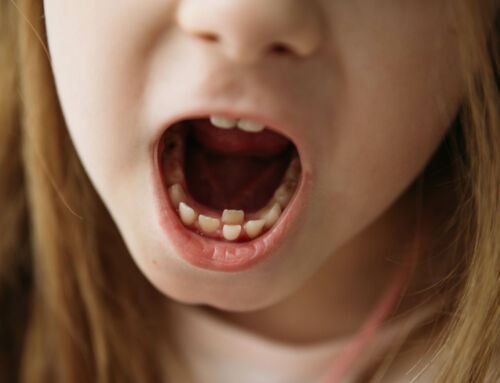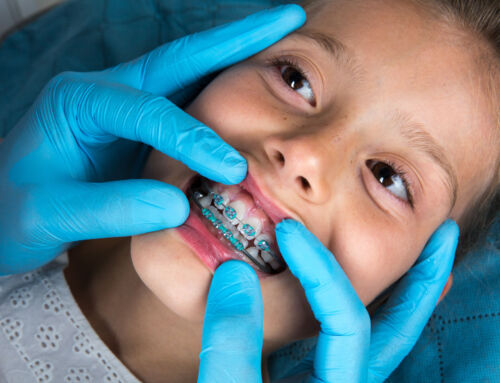Braces help over 4 million people in the U.S. at any one time straighten their teeth.
If you or your child fall into that group, taking care of your braces becomes a priority. You don’t want to spend the money on braces only to have them fail or cause more dental problems.
Proper care keeps your teeth clean and healthy, and it keeps your braces in good shape so they can do their job.
Keep reading to learn about taking care of your teeth with braces.

Brush Regularly
Good oral hygiene with braces starts with regular brushing. While brushing is always important, it becomes more challenging with braces attached to your teeth. If plaque and food remain against your teeth, you might end up with cavities, gum issues, or permanent discoloration on your teeth.
The general recommendation is to brush at least twice daily with each session lasting at least 2 minutes. It might take a little longer to brush with braces since you need to work around the brackets and wires.
With braces, it’s a good idea to brush every time you eat. If you’re away from home and can’t brush, you can rinse your mouth with water to help until you can brush.
Choose a soft-bristled brush with rounded bristles or use an electric toothbrush to clean your teeth. Use the toothbrush gently to prevent damage to the brackets and wires.
When brushing your teeth with braces, you want to focus especially on the areas where the braces are bonded to your teeth. Food and plaque can gather in those areas, which increases your chances of plaque buildup and tooth decay.
You might need to adjust the angle of your toothbrush so the bristles reach all sides of the brackets and the teeth. Brush each tooth from the top and bottom side of the bracket to ensure you clean all surfaces of your teeth.
An interdental toothbrush can help you get to the hard-to-reach areas when brushing. It’s specially designed to work around the wires and brackets.
After you brush, inspect your teeth to make sure you didn’t miss anything obvious. Follow up with mouthwash for additional cleaning.
Floss Carefully
Flossing is also very important with braces, but it becomes more challenging since you have to work around the brackets and wires. You’ll need to thread the floss through the wires to be able to floss your teeth properly. You can use a floss threader tool to make that part easier.
You can also add a water flosser in addition to regular floss to remove more buildup between your teeth and along the gumline. This dental tool uses a stream of water to loosen the gunk on your teeth. These tools don’t remove plaque as well as floss does, so it’s best to use both methods.
Skip Certain Foods
When you get braces, your orthodontist should cover the list of foods that are better to avoid. The biggest issues are foods that could get stuck to or damage your braces, including anything that’s hard, crunchy, sticky, or chewy.
Some examples of foods that are usually best to avoid include:
- Popcorn
- Taffy and other sticky candy
- Hard candy
- Chewy bread or bagels
- Gum
- Nuts
- Hard pretzels
- Corn on the cob
Limiting sugary foods can help improve the health of your teeth with braces. The sugar can stick to the braces, causing discoloration or decay in those areas.
Sticking to soft, easy-to-chew, healthy foods gives you the healthiest mouth and prevents problems with your braces.
Avoid Biting Into Foods
It’s best to cut food with a knife and fork or break off pieces before eating instead of biting directly into the food. That’s especially true for hard foods, such as corn on the cob and apples. However, it’s also helpful for softer foods, such as pizza or sandwiches.
Biting directly into any type of food can damage the wires on the braces. Eating pieces allows you to chew the food without biting into it to cut down on the risk of damage.
Sinking your teeth into your meal also pushes more food between and around your braces brackets. This holds more food against your teeth, increasing the change of decay. It also means you have more food to clean off your teeth the next time you brush.
Watch for Dangerous Habits or Activities
Certain habits or activities can damage your braces. Avoid chewing on anything that isn’t food, such as your fingernails or pen caps. You can bend or break the wires on the braces by doing this.
If you have a nervous habit that involves chewing on things, look for other ways to direct that energy. You might get yourself a stress ball to squeeze instead of chewing your nails.
You can still play sports with braces, but it’s a good idea to wear a mouthguard, especially for contact sports. The mouthguard protects the soft tissues, including lips and cheeks, if you get hit while playing sports.
Schedule Regular Appointments
Your orthodontist will let you know how often you need to schedule checkup appointments for your braces. Always schedule and keep those appointments to ensure your braces are working properly. Your orthodontist can also spot issues that you might not notice.
If you notice a broken or bent wire, loose bracket, loose tooth, or other issues, contact your orthodontist immediately. You’ll likely need to schedule an appointment immediately to get the problem corrected.
It’s also important to continue regular dental visits while you have braces. Your dentist can provide deep cleaning and apply fluoride treatments to help protect your teeth while you wear braces. Dentists can also spot early signs of decay to prevent major cavity issues.
Practice Taking Care of Your Braces
Taking care of your braces properly prevents bent or broken wires that can interfere with how the braces work. Oral hygiene with braces is also important in keeping your teeth healthy and clean.
If you’re considering braces or need help with your braces, contact us for more information or to schedule an appointment.




